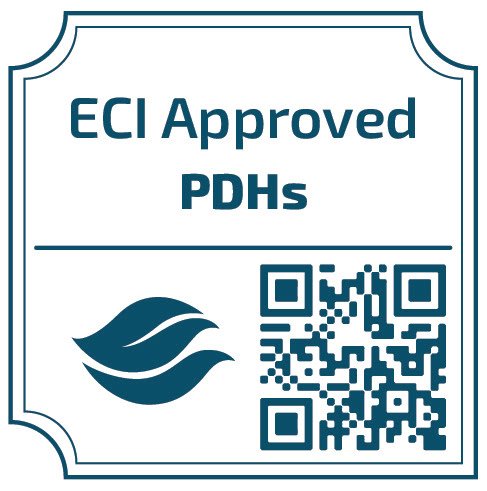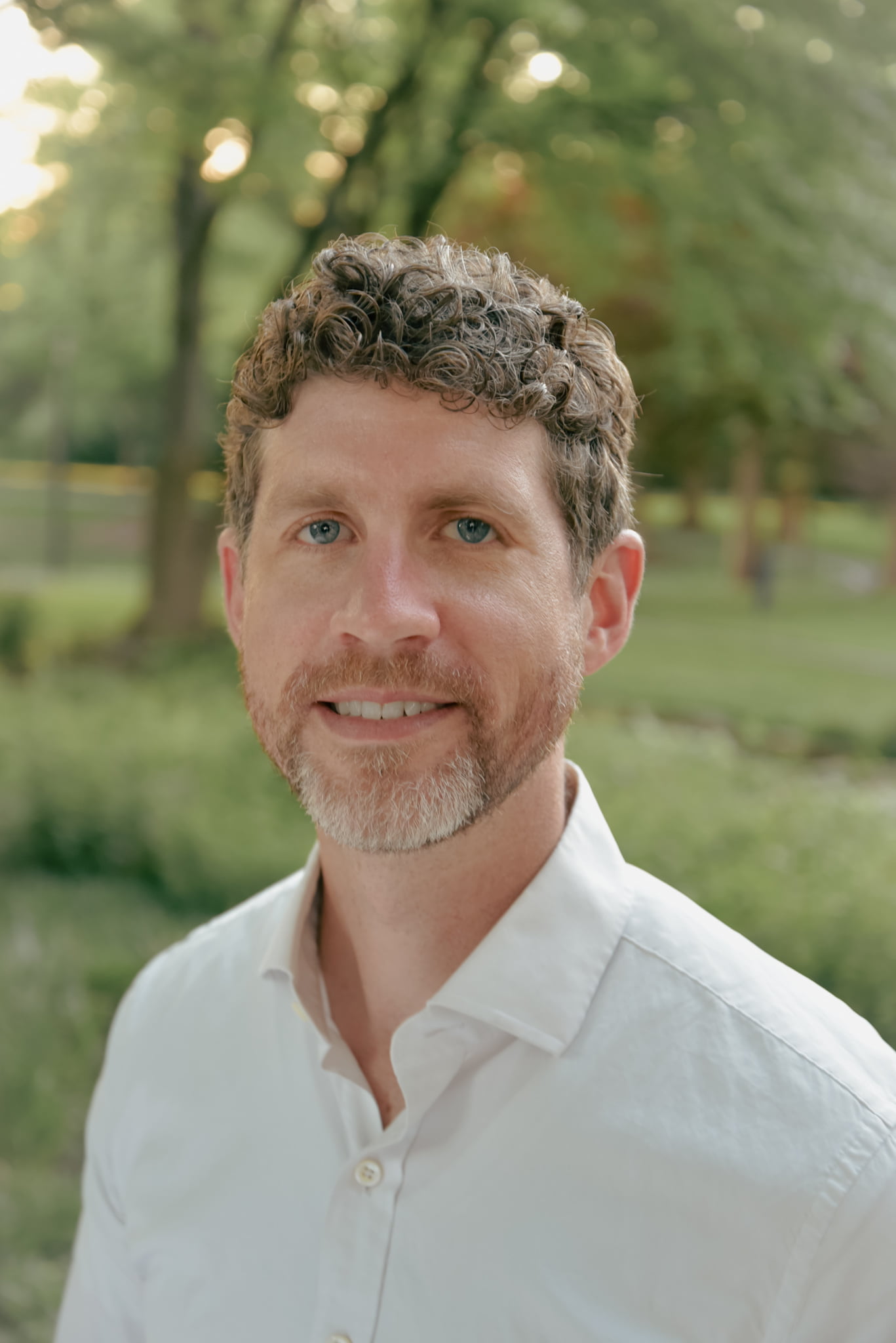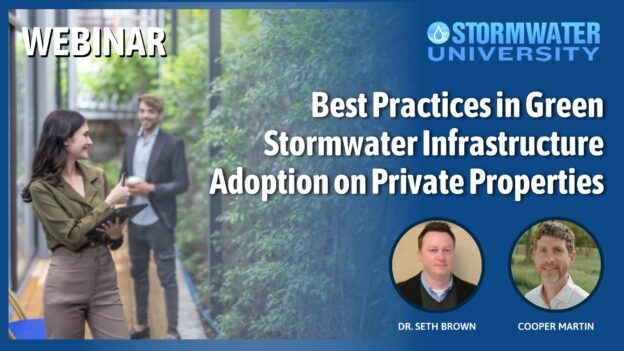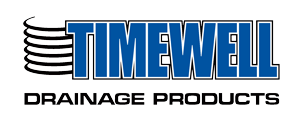Original Date: August 20, 2024
Speakers: Dr. Seth Brown and Cooper Martin
Credits: 0.1 CEU / 1.0 PDH / Approved for all Envirocert International, Inc. (ECI) Certifications: Approval # PDH-0047

Get the entire team trained! Click here to make a group purchase or register on behalf of a colleague.
Communities need cost-effective and innovative strategies for stormwater management infrastructure investments. In many circumstances, retaining water on-site through the use of Green Stormwater Infrastructure (GSI) is more cost-effective than traditional gray infrastructure options. GSI can reduce combined sewer overflows (CSOs), treat urban runoff pollution, replenish groundwater resources, and reduce erosion of headwater streams. GSI provides additional benefits such as improved air quality, enhanced parcel values, and improved social well-being. On public lands, a municipality can build stormwater infrastructure – including GSI – as needed; however, the implementation of urban retrofits on private properties cannot be mandated. In response to these constraints, communities are employing programs that use incentives and market-based approaches to spur the adoption of stormwater infrastructure on privately owned parcels.
This webinar will feature Dr. Seth Brown, Executive Director of the National Municipal Stormwater Association, who has developed an agent-based model that simulates the behavior of private property owners responding to incentives to adopt on-site green stormwater infrastructure. He will be joined by Cooper Martin, National Program Director for Rainplan, who has developed a national database of hundreds of incentives that Rainplan uses as a tool to drive adoption nationwide.
Learning Objectives
Upon completion of this course, participants should be able to:
- Explain why adoption of green stormwater infrastructure (GSI) is challenging and needed for private properties in urban and urbanizing areas
- Identify the critical decision-making dynamics associated with GSI adoption on private properties
- Apply the current standard of practice for stormwater utilities using incentives to improve stormwater management practices on private properties
- Implement the common and successful features of incentive programs for development and maintenance of BMPs on private property
About the Presenters

Dr. Seth Brown, Executive Director, National Municipal Stormwater Alliance
Seth Brown has over 25 years of experience in the water sector. He was the Director of Stormwater Programs at the Water Environment Federation from 2010-2015 and is currently the Executive Director of the National Municipal Stormwater Alliance, which is a 501.c.3 representing stormwater-focused organizations in 26 states across 9 of the 10 U.S. EPA regions with a network that is comprised of over 4,400 MS4s. Seth is also the Principal and Founder of Storm and Stream Solutions, LLC, a consulting firm providing a range of services from policy and alternative project delivery analysis in the stormwater sector to facilitation and training services focused on stormwater topics.
Seth has a Ph.D. in civil engineering from George Mason University with a research focus on socio-economic modeling of incentive-based investments of green stormwater infrastructure on private properties. He leads courses in Green Infrastructure and Innovative Water Partnerships at Virginia Tech and the University of Maryland at Eastern Shore and is a licensed professional engineer in the state of Maryland.
Cooper Martin, National Program Director, Rainplan

Cooper Martin is a public policy and program management expert in sustainability, climate resilience, and community development. He is currently the National Program Director for Rainplan, working with local government to build a bigger marketplace for green infrastructure and nature based solutions. Cooper also has more than 15 years of experience in non-profit management, serving as Director of Sustainability & Urban Innovation at the National League of Cities, and previously holding multiple positions in Government & Community Relations at the American Institute of Architects. He began is policy career by working one legislative session at the Kansas House of Representatives in Topeka, KS.






